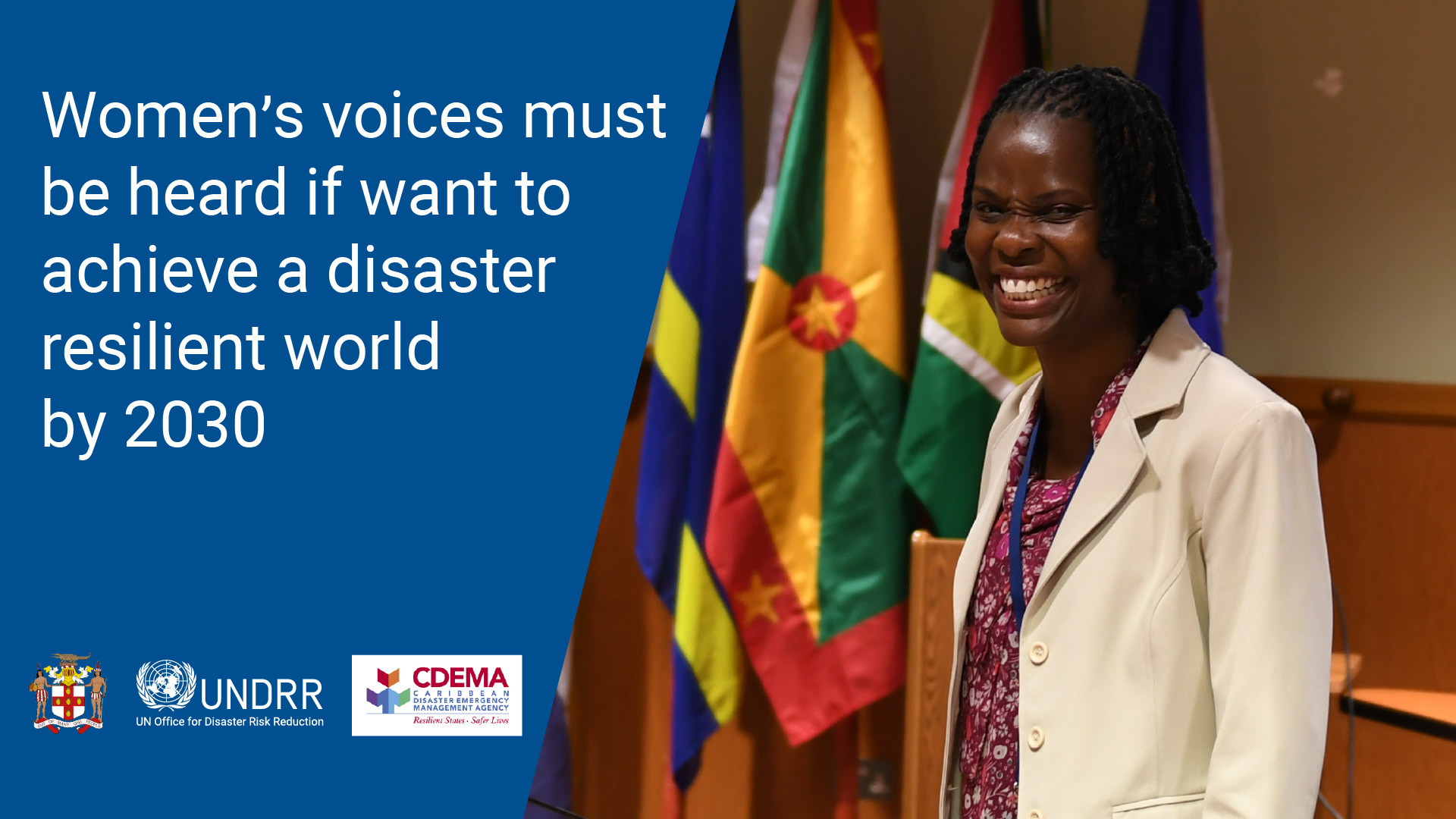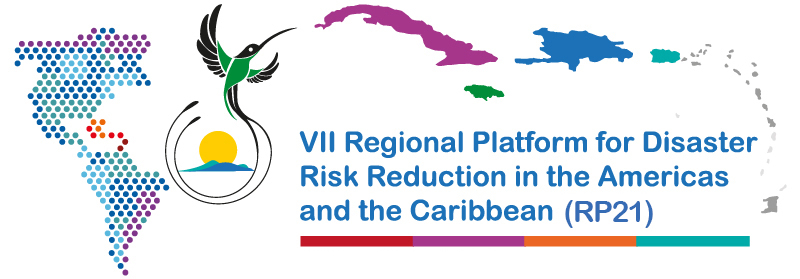Women's voices during the VII Regional Platform for Disaster Risk Reduction (RP20)

There are 495 million women in the Americas and the Caribbean region.
Women are increasingly recognized not just as victims of disaster but rather for their potential and ongoing engagement and leadership in disaster risk reduction. Women demonstrate often-unique roles in building resilience and managing risk as well as in disaster preparedness, response and recovery. Women are often first responders when disaster strikes, tending to the needs of their families and communities and coping with the adverse impact on their livelihoods. As such, they are also innovative creators or inventors of viable and sustainable solutions to the potential adverse effects of disaster and climate risk.
The Sendai Framework for Disaster Risk Reduction 2015-2030 calls for an all-inclusive approach to disaster risk reduction that recognizes women's indispensable role in risk reduction efforts and emphasizes the distinct gender-specific capacities and vulnerabilities to prevent, prepare, confront, and recover from disasters.
Women's voices are encouraged and specially recognized in the Regional Platform for Disaster Risk Reduction (RP) in the Americas and the Caribbean as essential for achieving a disaster resilient world by 2030.
In keeping with our commitments towards delivering the Sendai Framework in an inclusive and gender-sensitive manner and our efforts to strengthen the visibility and role of women in the VII Regional Platform for Disaster Risk Reduction in the Americas and the Caribbean sessions:
- Particular efforts are made to support gender-sensitive discussions throughout the organization process by the RP2020Advisory Council and organizing teams of the different sessions.
- All session organizers are encouraged to achieve gender balance in all RP2020sessions and events.
- Women are encouraged to take active leading and speaking roles throughout the VII Regional Platform discussions, be it in formal sessions as a (co)chair, (keynote) speaker, moderator, facilitator or discussant from the floor.
- A Side Event on Women's Entrepreneurship & DRR will take place during the formal program of the VII Regional Platform.
Promoting and mobilizing women's leadership and gender equality in building resilience is critical to the sustainability and achievement of risk reduction priorities and sustainable development goals at all levels.
UNGA resolution A/RES/70/204 adopted in February 2016 recognizes the importance of mainstreaming a gender perspective in disaster risk management to strengthen the resilience of communities and reduce social vulnerabilities to disasters, and the need for an inclusive participation and contribution of women in all forums and processes related to disaster risk reduction (DRR). The Resolution also encourages Governments to promote women's full, equal and effective participation and leadership in the design, management, resourcing and implementation of gender-sensitive disaster risk reduction policies, plans and programmes.
The UN Secretary-General's 2016 Report on the Implementation of the Sendai Framework (A/71/230) similarly recognizes the importance of empowering women to participate in gender-sensitive disaster risk reduction policies, plans and programmes and requests to address the gender inequality of risk and promote community resilience by actively engaging women as agents of change in disaster risk management.
The Government of Jamaica, UNDRR, CDEMA and members of the RP2020Advisory Council call upon our partners and stakeholders to ensure gender balance in both the organization and participation in all sessions of the RP20.
For more information
Sendai Framework for Disaster Risk Reduction 2015-2030
Gender and vulnerable groups are important focus areas in the Caribbean early warning systems (EWS)
Convention on the Elimination of All Forms of Discrimination against Women
Role of women in disaster risk governance
